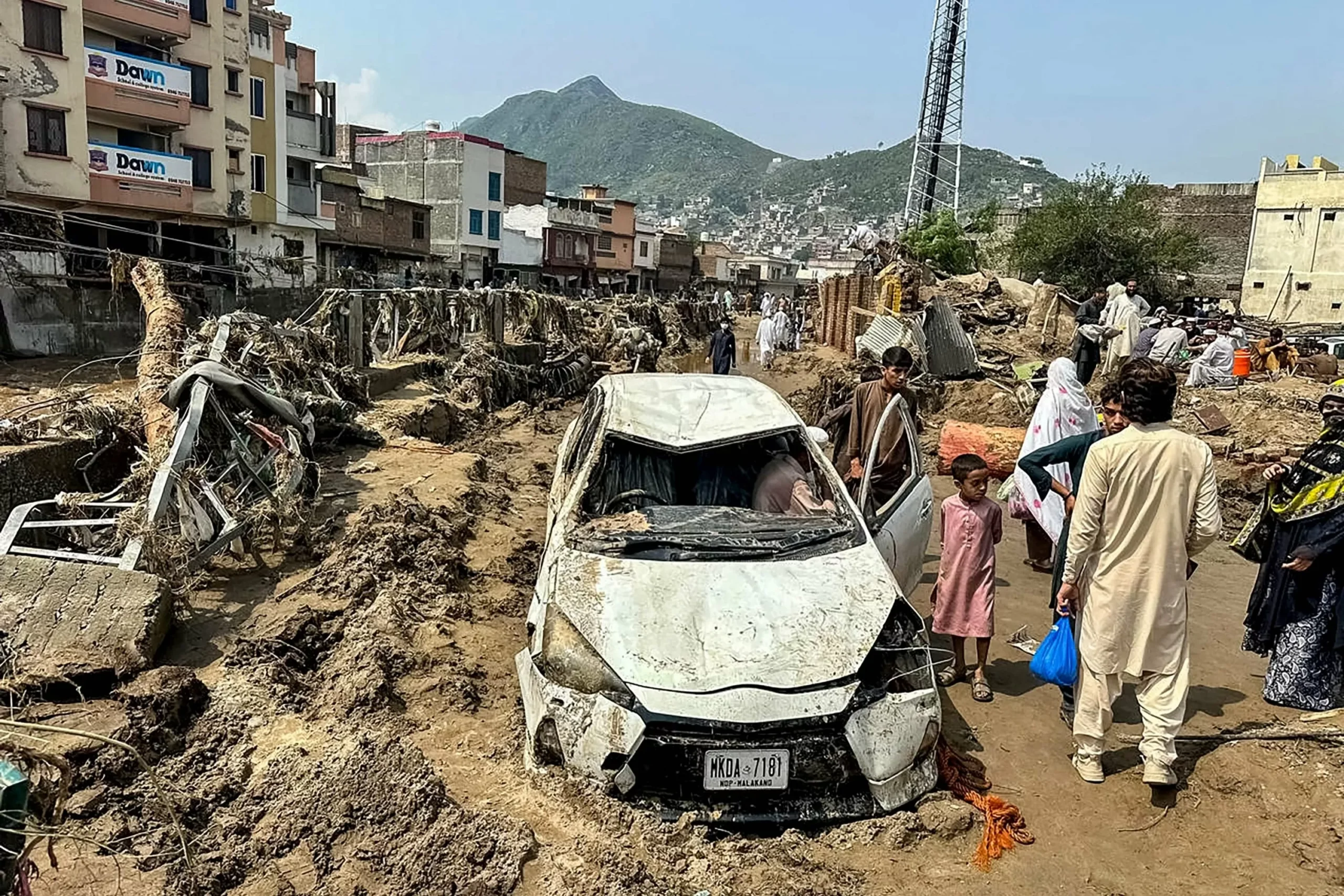At least 300 people have lost their lives in northwest Pakistan after two days of relentless rains and floods, local officials reported on Saturday. The devastating natural disaster has left a trail of destruction and claimed many innocent lives, as rescue workers continue to work around the clock to find survivors and provide aid to affected communities.
According to sources, the heavy downpour started on Thursday, causing rivers to overflow and inundating several towns and villages in the Khyber Pakhtunkhwa province. The sudden and powerful floods swept away homes, crops, and livestock, leaving behind a scene of devastation and despair.
As the rains intensified, rescue teams from the Pakistani Army, paramilitary forces, and local authorities rushed to the affected areas to provide much-needed assistance. Despite the challenging terrain and harsh weather conditions, these brave men and women have been working tirelessly to rescue those stranded and distribute essential supplies to the affected communities.
The latest reports from the disaster zone indicate that the death toll has risen to 300, with several more people still missing. As rescue efforts continue, the number of casualties is expected to increase, and the full extent of the damage is yet to be determined.
One of the worst-hit areas is the district of Chitral, with the town of Ayun bearing the brunt of the floods. Many roads and bridges have been washed away, making it difficult for rescue teams to reach some of the remote villages in the region. The floodwaters have also caused landslides, further complicating rescue efforts.
The floods have also disrupted power and communication systems, leaving many communities cut off from the outside world. In response, the government has mobilized all available resources to restore these vital services, allowing rescue teams to coordinate and provide assistance more effectively.
As the day gave way to night, rescue workers continued their efforts, facing heavy rain and strong winds throughout the night. By morning, 63 more bodies were recovered, bringing the total number of casualties to 300. The additional fatalities include women and children, making this tragedy even more heartbreaking.
The Pakistani government has declared a state of emergency in the affected areas and has promised to provide all necessary resources to assist in rescue and relief efforts. Prime Minister Imran Khan has expressed his condolences to the families who have lost their loved ones and assured that the government will do everything in its power to support the affected communities.
Meanwhile, international aid agencies have also stepped in to provide assistance to those affected by the floods. The United Nations has pledged to provide emergency aid, including food, water, and shelter, to the affected communities. Other countries, including China and the United States, have also extended their support and offered aid to help in the relief efforts.
As the floodwaters start to recede, the affected communities are now faced with the daunting task of rebuilding their lives from scratch. The aftermath of the floods has left many homeless and in desperate need of food, clean water, and healthcare. It is a long road to recovery, and it will take the collective effort of the government, aid agencies, and individuals to help these communities get back on their feet.
The heavy rains and floods may have caused devastation and loss of life, but it has also brought out the best in humanity. The selfless actions of the rescue workers, the support from the government and aid agencies, and the overwhelming response from individuals looking to help in any way they can, is a testament to the human spirit and our capacity to come together in times of crisis.
As the rescue and relief efforts continue, let us keep the affected communities in our thoughts and prayers. And let us also take this opportunity to reflect on how we can better prepare for and respond to such disasters in the future. Together, we can overcome this tragedy and rebuild a stronger, more resilient Pakistan.






![Complete BritRail Pass Guide [Types, How to Use It, Pros + Cons]](https://inside-news.uk/wp-content/uploads/2025/06/00221EB4-BCA2-4DBB-6CD4-83DBC37D71FA-120x86.webp)















